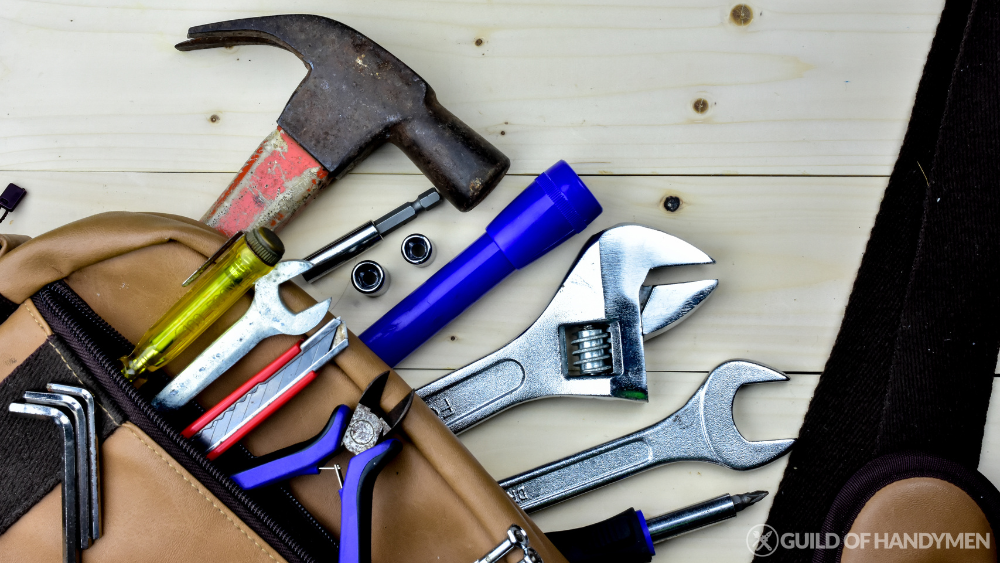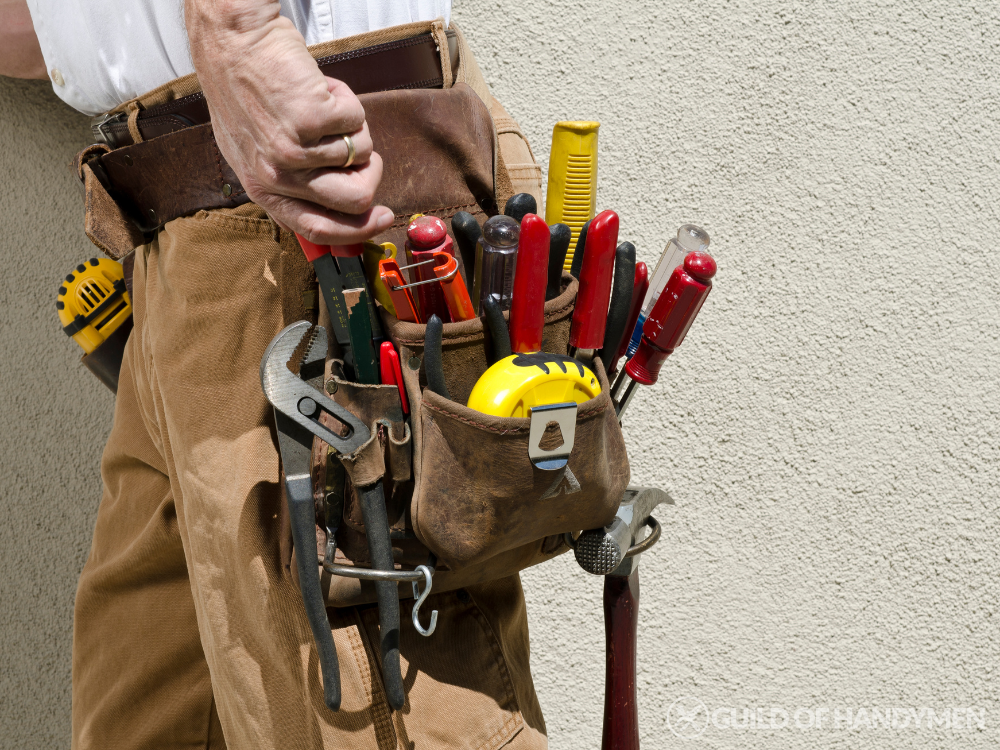Starting a handyman business can be a brilliant opportunity if you’re skilled with tools and enjoy solving practical problems around homes and businesses. The UK market has a growing demand for handymen, whether for minor repairs, installations, or more extensive renovation projects. However, starting a handyman business requires not just technical skill but also a good understanding of the legal, financial, and operational sides of running a business. Here’s a comprehensive guide to help you get started.
Starting a Handyman Business: UK Rules and Regulations

Before diving into business, it’s essential to get familiar with UK rules and regulations for self-employed tradespeople. These cover everything from business registration to health and safety requirements and can vary depending on your services.
Registering Your Business
If you’re going into business alone, you’ll need to register as a sole trader with HM Revenue and Customs (HMRC). This is relatively simple and involves informing HMRC that you’ll be earning income as a self-employed person. However, if you plan to expand and hire employees, consider registering as a limited company. Limited company status provides some financial protection, as it separates personal assets from the business’s assets.
Licensing and Certifications
While the UK doesn’t mandate licenses for general handyman work, some services, like electrical or plumbing work, require specific qualifications and certifications:
- Electrical Work: In England and Wales, most domestic electrical work must comply with Part P of the Building Regulations. You’ll need to be a ‘competent person’ certified by a scheme such as NICEIC or NAPIT.
- Gas Services: If your work involves gas appliances, you must be registered with Gas Safe.
Obtaining these certifications can not only make your business more versatile but also increase credibility with clients.
Health and Safety Regulations
The Health and Safety Executive (HSE) requires businesses to conduct risk assessments to protect themselves and others on-site. For handymen, this means taking steps to ensure safe working conditions, using equipment properly, and having clear protocols for handling hazardous materials if relevant. Also, you may need to provide your clients with method statements for specific jobs, especially in commercial or high-risk environments.
Is a Handyman Business Profitable?
One of the main draws of starting a handyman business is its profitability potential. The demand for reliable handymen is consistently high, and depending on your skills, you can cater to a variety of clients, from homeowners to landlords and businesses. Here are some factors that can impact profitability:
Skillset and Specialisation
While general handyman services are profitable, specialising in areas such as painting, plastering, or carpentry can lead to higher rates. Being certified in electrical or plumbing work allows you to charge more for these high-skill jobs.
Demand and Client Base
The UK’s housing market is continuously expanding, meaning homeowners and landlords frequently require maintenance services. Focusing on building a base of repeat customers, especially in areas with high rental populations, can lead to stable income.
Business Costs
Compared to other businesses, a handyman business has relatively low overhead costs. However, initial expenses include tools, transportation, and possibly storage space for materials. Pricing your services to cover these costs and earn a profit is crucial. Most handymen charge an hourly rate or a fixed fee per job; researching competitors’ rates in your area can help you set competitive yet profitable prices.
What Insurance Do I Need to Be a Handyman?

Insurance is essential for protecting your business against unforeseen incidents. Here are the main types of cover to consider:
Public Liability Insurance
Public liability insurance is a must for any handyman. It covers claims made by customers or third parties for injury or damage caused by your work. For example, if a client trips over your toolbox and gets injured, public liability insurance would cover legal costs and any compensation awarded.
Tool and Equipment Insurance
Your tools are one of your biggest assets. Tool insurance covers the cost of replacement or repair if they’re stolen or damaged. Since you’ll likely be carrying your tools between job sites, getting a policy that covers them while they’re in transit or on-site is wise.
Employers’ Liability Insurance (If You Have Staff)
If you decide to hire staff, even on a part-time or casual basis, employers’ liability insurance is required by law. This cover protects your business if an employee becomes ill or is injured due to their work with you.
Professional Indemnity Insurance
This insurance is useful if you provide advice to clients. For instance, if you advise a client on the best materials for a job and they experience a problem with your recommendation, this insurance can cover claims against you for financial losses resulting from your advice.
What Is the Best Business Structure for a Handyman?
Choosing the right business structure is an important decision for any business, as it affects everything from your taxes to personal liability.
Sole Trader
Operating as a sole trader is often the easiest and most popular choice for handymen. You run the business yourself and keep all profits after tax. However, you’re personally responsible for any debts the business incurs. Sole traders have simpler accounting requirements, making it a good option if you’re just starting out and want to keep things straightforward.
Limited Company
If you’re looking to grow your business and take on larger contracts, setting up a limited company might be a better option. As a limited company, your business is legally separate from you, which limits your personal liability. Limited companies also enjoy tax benefits and are often viewed as more credible by larger clients.
Partnership
A partnership can be beneficial if you’re teaming up with another tradesperson. In a partnership, each partner shares profits, costs, and liabilities. Partnerships can be a good way to pool resources, such as tools and a vehicle, and expand the range of services offered.
Essential Tools and Equipment

Starting a handyman business requires a solid set of tools and equipment. These should be high-quality, durable, and safe to use. Here are some essentials to get you started:
- Basic Hand Tools: Hammers, screwdrivers, pliers, tape measures, and levels.
- Power Tools: A cordless drill, jigsaw, and circular saw will cover most job requirements.
- Safety Gear: Safety glasses, gloves, ear protection, and sturdy footwear.
- Specialty Tools: Depending on your services, tools like pipe wrenches, multimeters, or painting gear might be necessary.
Investing in reliable tools can improve job efficiency and the quality of your work.
Marketing Your Handyman Business
Once you’re set up, the next step is to get clients. Building a successful handyman business requires a combination of online and offline marketing.
Local Advertising
Flyers, business cards, and posters in local shops or community centres can be effective, especially if you’re targeting homeowners in your neighbourhood. Networking with other tradespeople, such as plumbers and electricians, can also lead to referrals and collaborative projects.
Online Presence
Creating a simple website or social media profiles for your business is essential in today’s digital world. You can showcase before-and-after photos, customer testimonials, and a list of services to attract clients. Many handymen find success by joining trade service sites like Rated People or Checkatrade, where potential customers are actively searching for reliable tradespeople.
Word of Mouth
Once you have a few satisfied customers, word of mouth can become your most powerful marketing tool. Encourage happy clients to leave reviews or recommend you to their friends and family. Offering small discounts for referrals can help boost your customer base quickly.
Managing Finances and Taxes

Good financial management can make a big difference in the long-term success of your business. Here’s what you need to know:
Bookkeeping
Keep track of all your income and expenses. You might want to invest in accounting software or use a professional bookkeeper to handle your records. This will help you understand your cash flow and make tax time much easier.
Paying Taxes
As a self-employed handyman, you’ll need to file a Self-Assessment tax return each year. Remember to set aside money for taxes throughout the year to avoid last-minute stress. In addition, if your business turnover exceeds the VAT threshold, you’ll need to register for VAT and submit VAT returns quarterly.
Saving for Business Growth
Setting aside a portion of your profits can help you invest in new tools, expand your services, or even hire extra help as your business grows. Consider having a dedicated savings account for business growth.
Key Takeaways
- Know the Regulations: Make sure to understand registration, certification, and health and safety requirements in the UK.
- Get Insured: Public liability, tool insurance, and (if relevant) employers’ liability insurance are vital for protecting your business.
- Choose Your Business Structure: Whether as a sole trader, limited company, or partnership, pick the structure that best suits your needs.
- Market Effectively: Use local advertising, online marketing, and word of mouth to attract clients.
- Stay on Top of Finances: Maintain clear financial records and plan for taxes to keep your business on solid ground.
Starting a handyman business can be highly rewarding, offering both flexibility and the potential for strong earnings. With careful planning and a commitment to providing quality service, you’ll be well on your way to building a successful handyman enterprise.

